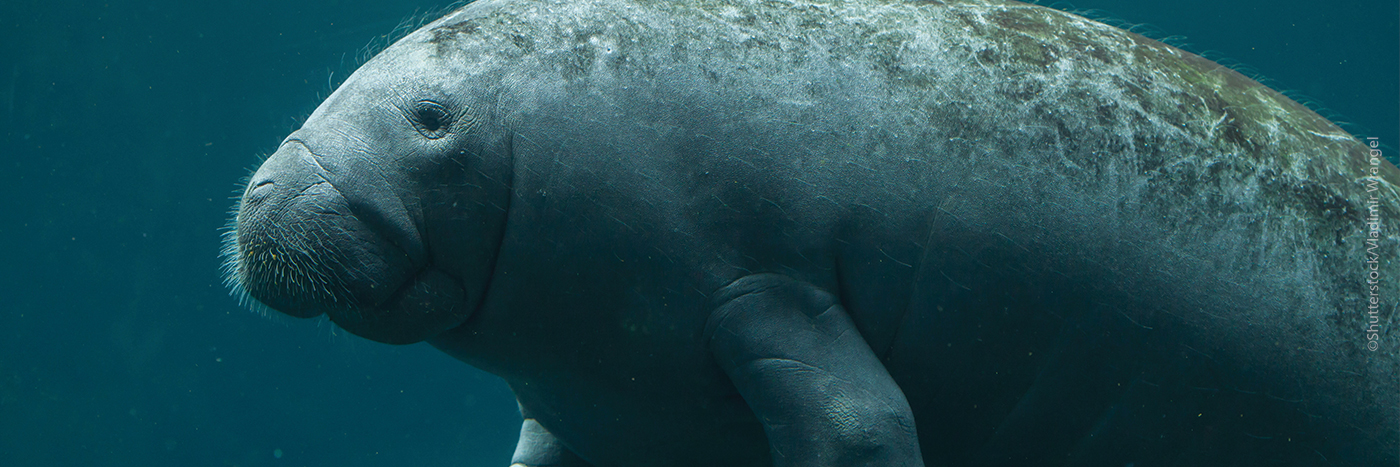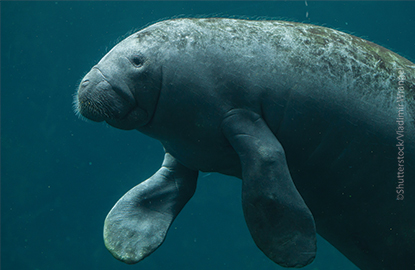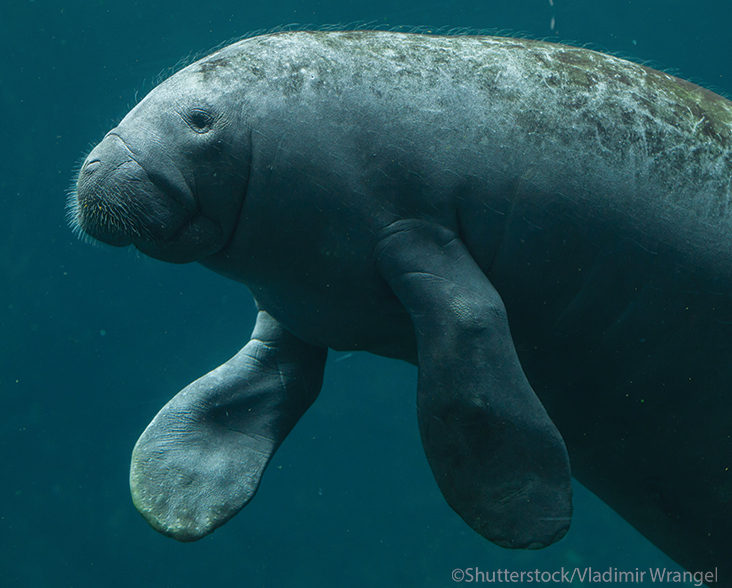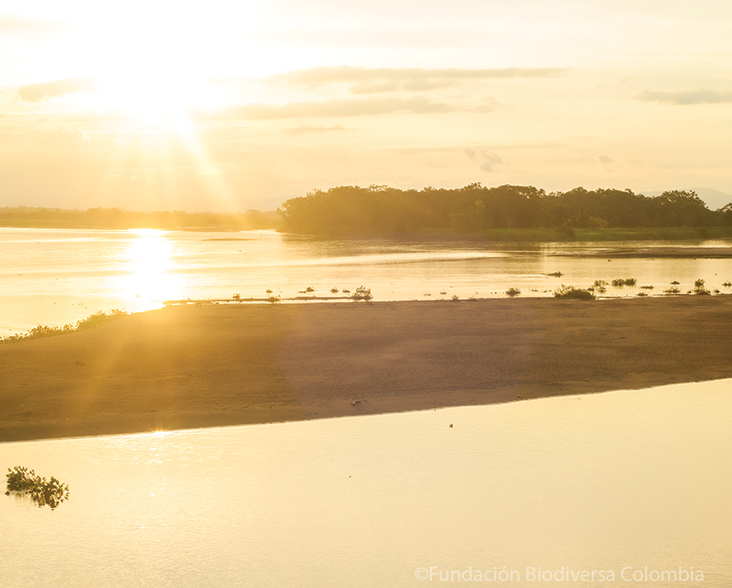



Class: Mammalia
Order: Sirenia
Family: Trichechidae
Scientific Name: Trichechus manatus manatus
IUCN Red List status: Endangered
The Antillean or Greater Caribbean Manatee is a subspecies of the West Indian Manatee (Trichechus manatus) and has a range stretching along the eastern coast of Central America, the western Caribbean islands and north-east South America, though its distribution is very sparse and patchy.

The Antillean Manatee can alone or in breeding herds generally of 3-6 individuals. They have a broad diet which has allowed them to survive and sustain populations in areas with freshwater, estuarine and marine plants, with some populations being observed to have completely different diets to others.
The Antillean Manatee can mainly be found in turbid freshwater environments such as estuaries, rivers, swamps and also brackish coastal lagoons. They are known to migrate together based off of seasonal changes in rainfall and flooding, which can bring them up to graze on forests and floodplains beneath the waterline.

The Antillean Manatee is endangered due to a wide variety of causes including urbanisation and habitat destruction, river pollution, poaching for meat across much of their range, and invasive species increasing interspecific competition, such as the hippopotamuses released into the Magdalena River basin in Colombia.
Human activity has been documented to have a significant effect on the population of these manatees, with a 2012 model suggesting that a human-caused increase in their mortality rate of just 5% would lead to populations being unsustainable and lead them to extinction.